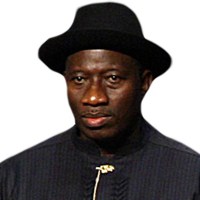Late last month, Nigerian central bank governor Lamido Sanusi was suspended from office after alleging that $20 billion had disappeared from the state oil company. In an email interview, Wale Adebanwi, associate professor of African American and African studies at University of California, Davis and author of the 2012 book “Authority Stealing: Anti-Corruption War and Democratic Politics in Post-Military Nigeria,” explained the state of anti-corruption efforts in Nigeria.
WPR: What is the state of Nigeria’s anti-corruption efforts under President Goodluck Jonathan?
Wale Adebanwi: It is appalling. And this is not surprising because, even before Jonathan became president, he served as a compliant deputy to one of the most corrupt governors in country, Diepreye Alamieyeseigha, who jumped bail in the U.K. and was later found guilty and jailed in Nigeria. When he succeeded Alamieyeseigha as governor of the oil-rich Bayelsa state, Jonathan himself was the subject of allegations of rank corruption.

